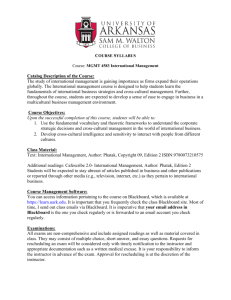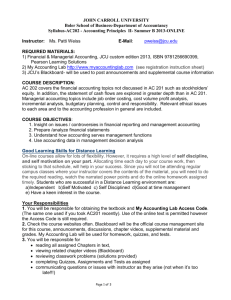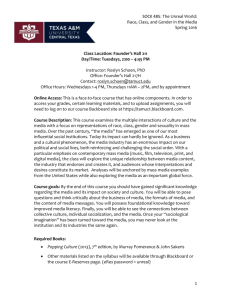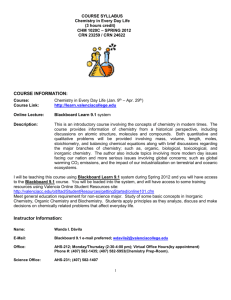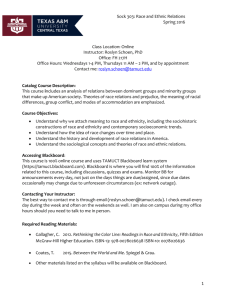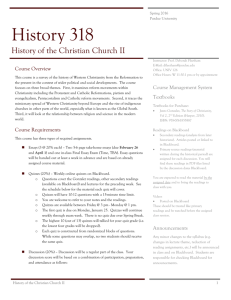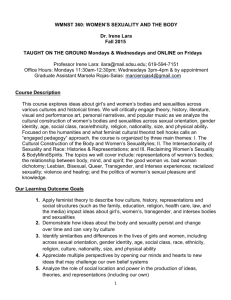Ethical Problems in Contemporary Life: Self, Other, Society
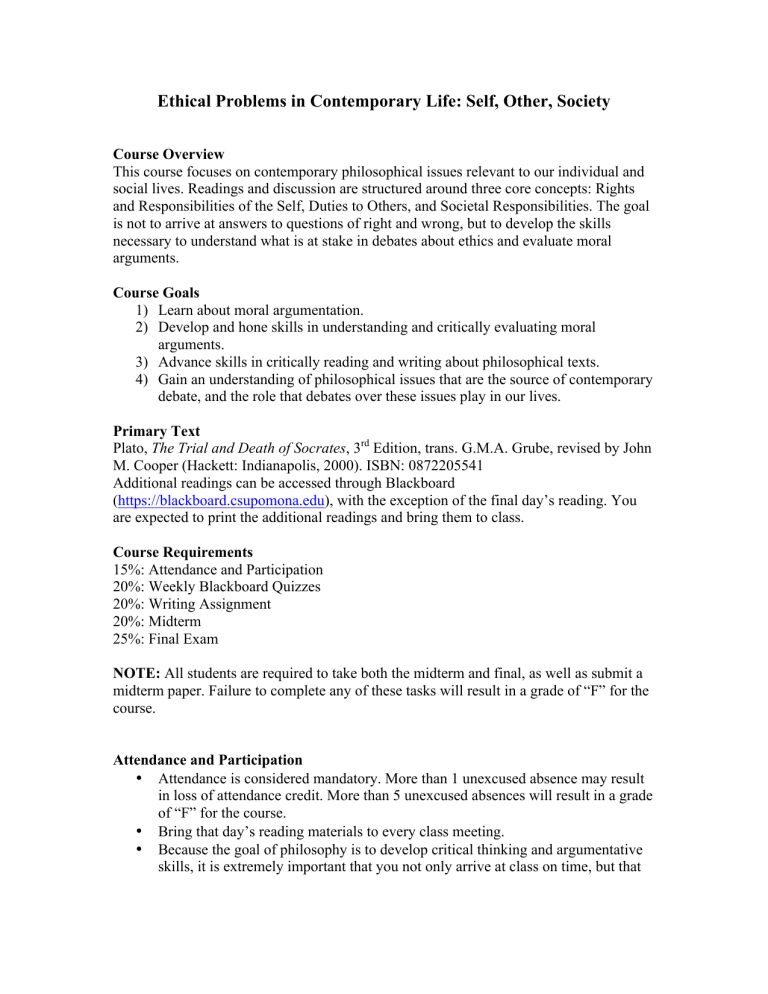
Ethical Problems in Contemporary Life: Self, Other, Society
Course Overview
This course focuses on contemporary philosophical issues relevant to our individual and social lives. Readings and discussion are structured around three core concepts: Rights and Responsibilities of the Self, Duties to Others, and Societal Responsibilities. The goal is not to arrive at answers to questions of right and wrong, but to develop the skills necessary to understand what is at stake in debates about ethics and evaluate moral arguments.
Course Goals
1) Learn about moral argumentation.
2) Develop and hone skills in understanding and critically evaluating moral arguments.
3) Advance skills in critically reading and writing about philosophical texts.
4) Gain an understanding of philosophical issues that are the source of contemporary debate, and the role that debates over these issues play in our lives.
Primary Text
Plato, The Trial and Death of Socrates , 3 rd Edition, trans. G.M.A. Grube, revised by John
M. Cooper (Hackett: Indianapolis, 2000). ISBN: 0872205541
Additional readings can be accessed through Blackboard
( https://blackboard.csupomona.edu
), with the exception of the final day’s reading. You are expected to print the additional readings and bring them to class.
Course Requirements
15%: Attendance and Participation
20%: Weekly Blackboard Quizzes
20%: Writing Assignment
20%: Midterm
25%: Final Exam
NOTE: All students are required to take both the midterm and final, as well as submit a midterm paper. Failure to complete any of these tasks will result in a grade of “F” for the course.
Attendance and Participation
• Attendance is considered mandatory. More than 1 unexcused absence may result in loss of attendance credit. More than 5 unexcused absences will result in a grade of “F” for the course.
• Bring that day’s reading materials to every class meeting.
• Because the goal of philosophy is to develop critical thinking and argumentative skills, it is extremely important that you not only arrive at class on time, but that
you are prepared to discuss issues relevant to course readings with your instructor and your peers.
•
Posting on Blackboard: You must post to Blackboard at least 5 times to receive full credit for participation. Posts must be at least 2 sentences long. There are 8 topic headings and each post must be under a different one. (For example, if you post twice under “Freedom of Speech” that will only count as one post.) These will be accessible the night before we begin a topic and will be closed the day after we complete it.
Quizzes
Nine weekly quizzes will be administered through Blackboard. These may be accessed through the “Assignments” tab. Quizzes should be treated as though they were being administered in class (Do not ask for answers from colleagues or the internet. Do not cut and paste from class lecture slides. Write answers in your own words.) They will be timed (15 minutes), so I suggest you study ahead of time. Quizzes will be made available from 10 am Friday through noon Monday, beginning January 11 th . The lowest quiz score will be dropped and the average of your 8 remaining scores will determine your quiz grade for the quarter. There will be no quiz the weekend following the midterm.
Writing Assignment
A paper of approximately 1,000 words will be required. The topic for this paper will be made available at the start of the 3 rd week of class. You are required to share your paper with a colleague and discuss it with that person during class the following week. 10% of your grade will be determined by the commentary you make on the other student’s draft and the improvements made to your own paper.
All papers will be submitted through Blackboard’s “Turnitin” application and must be turned in by 5 pm on the date due to avoid a late penalty. No hard copies are required.
When grading is completed, students will have access to all instructor comments through
Turnitin.
Late Policy for All Assignments : Assignments received after the time they are due will receive a reduction of 1/3 of a grade, and an additional 1/3 grade reduction for each additional day the paper is late. (For example, an “A” paper turned in late on the day it is due will receive an “A-“. The same paper will receive a “B+” if turned in the following day.)
Classroom Etiquette and Other Issues
• Laptop/tablet use is not allowed in the classroom without the express consent of the instructor. If you need to use a laptop or tablet computer during class, please contact the instructor by email or during office hours.
•
Lecture slides will be posted to blackboard after class has ended. Please take notes and pay attention during class time as I will talk and write on the board.
• Cell phones should be kept on silent and placed in bags (not on desks) during all class meetings.
• We will be some issues that are sometimes personal. I expect that all students will treat everyone in the classroom politely and with respect.
•
Plagiarism and other forms of academic dishonesty will not be tolerated. Please familiarize yourself with campus rules as well as tips for avoiding violations at: http://dsa.csupomona.edu/judicialaffairs/academicintegrity.asp
Schedule/Readings (subject to change)
1/8: Introduction to Course Topics
What is Moral Argumentation?
1/10-1/15: Plato, Euthyphro
*1/11: FIRST QUIZ
Rights of the Self: What rights do individuals have? What is the source of these rights?
What limitations are there on rights? (weeks 2-4)
Freedom of Speech
1/17: Mill, “Of the Liberty Thought and Discussion”
1/22: Brison, “The Price We Pay? Pornography and Harm”
Freedom of Action: Substances of Abuse
1/24: Shapiro, “Addiction and Drug Policy”
1/29: Wilson, “Against the Legalization of Drugs”
Freedom of Possession: The Right to Bear Arms
*1/31: Writing Assignment Discussion
2 nd Amendment
*2/4: Writing Assignment Due
2/5: Lafollette, “Gun Control”
Responsibilities to Others
:
What do we owe to other people, and why? Do our responsibilities differ given specific relationships? (weeks 5-7)
Duties of “Charity”
2/7: Singer, “Famine, Affluence, and Morality”
2/12: Hardin, “Lifeboat Ethics: The Case Against Helping the Poor”
*2/14: Midterm (in class)
NO QUIZ THIS WEEK
The Family
2/19: English, "What Do Grown Children Owe Their Parents?"
2/21: Mills, “The Ties That Bind: Duties to Family Members”
Societal Obligation : What does participation in society require? What is citizenship?
What do individual citizens owe to compatriots and governments? (weeks 8-10)
Voting
2/26: TBA
2/28: Dagger, “Compulsory Voting and Voter Registration”
Moral Responsibility and Following the Law
3/5: Schauer and Sinnott-Armstrong, “Is There a Moral Obligation to Follow the Law?”
3/7-3/12: Plato, Crito
3/14: King, “Letter from Birmingham Jail” (available at: http://www.africa.upenn.edu/Articles_Gen/Letter_Birmingham.html)
